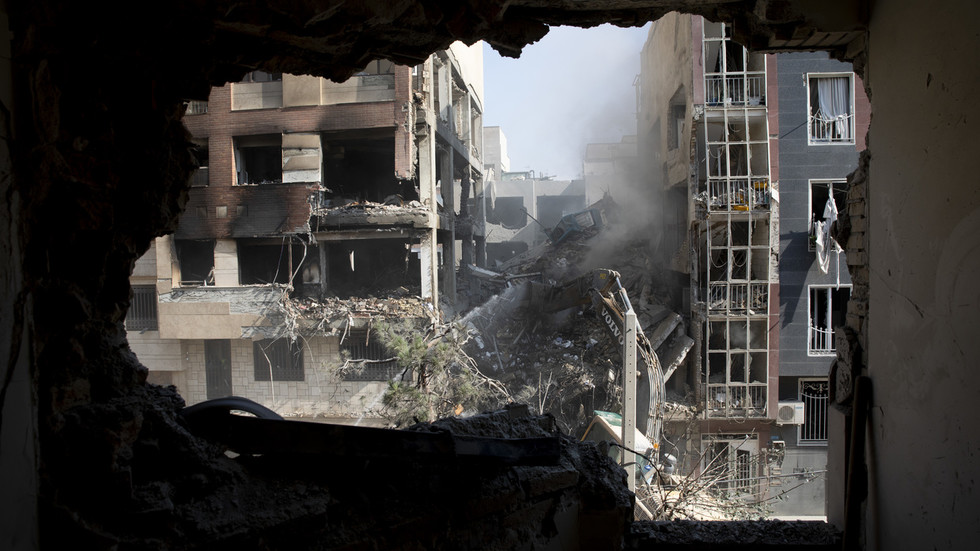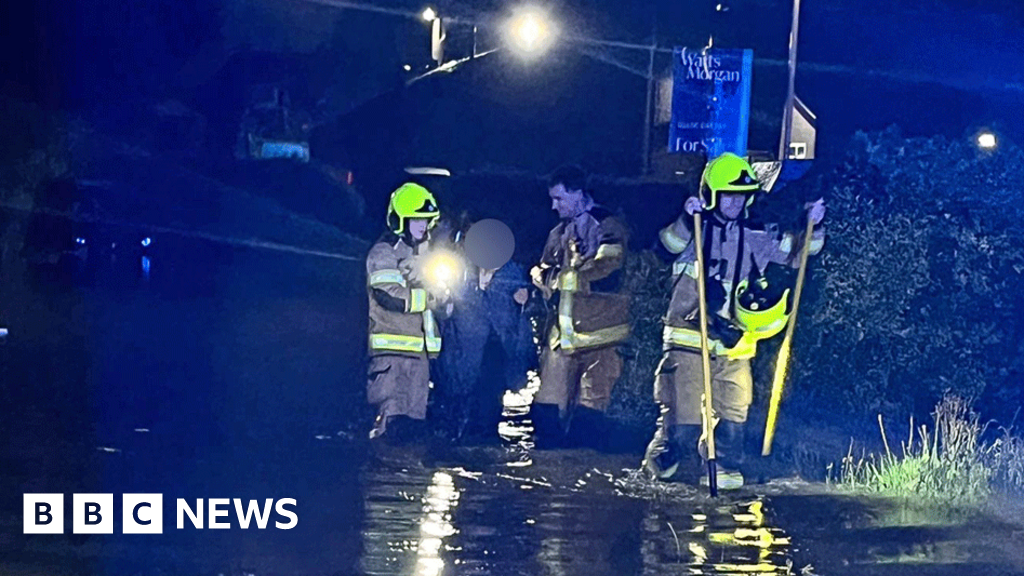The reactions came quickly. Only a few hours after Israel's early morning attack on Iran, the Saudi Foreign Ministry voiced its opinion. "The Kingdom of Saudi Arabia expresses its strong condemnation and denunciation of the blatant Israeli aggressions against the brotherly Islamic Republic of Iran," it said in a statement.
Saudi Arabia is in a tricky position. For years, there have been efforts to bring Israel closer to Arab nations in its neighborhood, especially the wealthy Gulf states. This was the primary aim of the US-sponsored, so-called Abraham Accords. These did eventually improve relationships between Israel and several nations, including Bahrain and the United Arab Emirates.
Saudi Arabia was not among those countries. Although there has been behind-the-scenes cooperation of many kinds for years, Saudi Arabia — seen as a leader in Sunni Islam because it is the custodian of some of the religion's holiest sites — has always wanted to avoid looking as though it was abandoning solidarity with the Palestinian cause to get closer to Israel.
That impression has been all the more important since October 7, 2023, after the militant group Hamas — classified as a terrorist organization by Germany, the EU, the US and several other countries attacked Israel, killing around 1,200 people and kidnapping around a further 250. The ongoing, retaliatory Israeli offensive in Gaza has since killed over 55,000 people. In November 2024, after just over a year of the Israeli offensive, Saudi Crown Prince Mohammed bin Salman accused Israel of committing genocide at a summit of Arab and Muslim leaders in Riyadh.
Israel launches strikes on Iran, sparking fears of wider war
Saudi balancing act
That has not prevented Saudi Arabia from granting Israel permission to use its airspace for flights headed to the UAE though. And that is even as the Saudis have grown closer to their traditional foes, the Iranians. Iran and Saudi Arabia broke off diplomatic relations in 2016 but resumed them in 2023 after talks held in China.
In any rapprochement with Iran, the Gulf states are quite likely to have had exactly this current scenario in mind, says Marcus Schneider, who heads the Friedrich Ebert Foundation's project for peace and security in the Middle East and is based in Lebanon.
"In the capitals of the Arabian Peninsula, they're well aware they're sitting ducks if a war breaks out between Israel and Iran," Schneider explained. "Unlike Israel, they're not protected by any effective defense system. They've been afraid of this happening for a long time which is why they've always tried to stop Israel from escalating, via their US ties."
Since October 7, 2023, Saudi Arabia has been engaged in something of a balancing act, says Sebastian Sons, a senior researcher and expert on the Gulf states at the Bonn-based think tank, CARPO.
 Israel said it partially destroyed Iran's Natanz nuclear facility in Friday's strikesImage: Maxar Technologies/Handout/REUTERS
Israel said it partially destroyed Iran's Natanz nuclear facility in Friday's strikesImage: Maxar Technologies/Handout/REUTERS"[Saudi Arabia] is committed to de-escalation with all its neighbors," Sons told DW. "In this sense, it has attempted to act as a platform for dialogue in various conflicts and has hosted several major summits — including one on the war in Gaza — which Iranians regularly participated in. In a sense, these diplomatic activities are all part of the Saudi model, which focuses on rapprochement rather than conflict," Sons explained.
That is why an escalation in conflict between Iran and Israel is something of a worst-case scenario. "Saudi Arabia finds itself in the eye of the storm and fears there might be attacks on its own territory because US troops are stationed there," the expert noted.
Houthi conflict heats up?
There are also concerns that the Houthi rebel group from neighboring Yemen, which is allied with Iran, might resume their attacks on Saudi Arabia. The memory of Houthi attacks on Saudi oil facilities in 2019 is still vivid.
Those concerns have seen the Saudis even more determined to seek diplomatic autonomy and improve their relationship with Iran, Sons told DW. "They'd like to move from a tactical to more strategic engagement and to expand cooperation in other areas, like security. At the same time, Saudi Arabia also hasn't stopped distrusting Iran. It still has serious reservations about its neighbor. This makes Saudi calculations about the current situation even more difficult."
 A building in Tehran destroyed by Israeli strikesImage: MEGHDAD MADADI/TASNIM NEWS/AFP/Getty Images
A building in Tehran destroyed by Israeli strikesImage: MEGHDAD MADADI/TASNIM NEWS/AFP/Getty ImagesThe wording that the Saudi Foreign Ministry chose is also indicative of how dramatic this situation is for them, the Friedrich Ebert Foundation's Schneider said. In their statement, the Saudis called Persian-majority Iran a "brotherly" country, a term usually reserved for Arab-majority countries. "This choice of words shows they don't want to be perceived as Israel's accomplice under any circumstances," he explains.
The smaller Gulf state of Oman, which previously mediated talks between Iran and the US on Iran's nuclear program, also apparently believes a diplomatic solution is at risk. The sixth round of nuclear talks was meant to begin there on Sunday but has been cancelled.
In a statement, Oman said it condemned Israel's attack on Iran and that it holds Israel responsible for any escalation in the region.
 Members of Iraq's paramilitaries, known as the Popular Mobilization Forces, many of whose fighters pledge loyalty to IranImage: dpa/picture alliance
Members of Iraq's paramilitaries, known as the Popular Mobilization Forces, many of whose fighters pledge loyalty to IranImage: dpa/picture allianceTensions are also running high in Iraq. In Iraq there are well-established paramilitaries, known as the Popular Mobilization Forces, or PMF. Many of their fighters' pledge loyalty to Iranian religious and military leadership because the neighboring country has provided them with financial, logistical and even spiritual support, as well as arms.
"If the government in Tehran now tells them that everything is at stake, they could well take up arms," Schneider said. "They could, for example, be directed against US troops stationed in Iraq or other US targets. That's why the US withdrew some embassy staff [from Iraq] a few days ago."
This story was originally published in German.

 16 hours ago
4
16 hours ago
4









